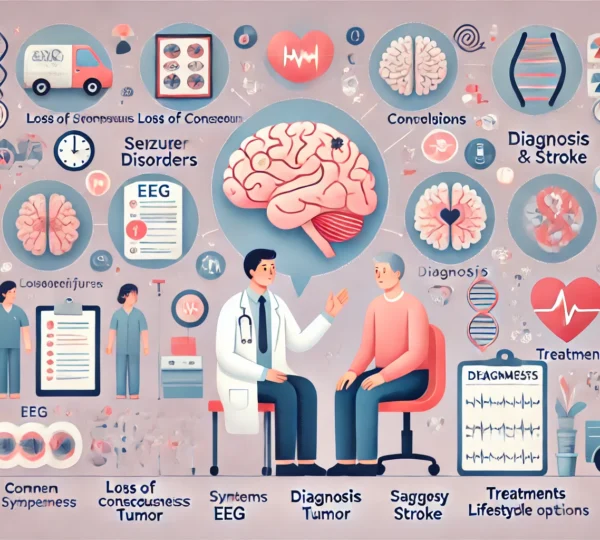Understanding Seizure Disorders in India: What You Should Know
Seizure Disorders: An Overview
Seizure disorders are conditions that lead to seizures, which are sudden, uncontrolled electrical disturbances in the brain. These disturbances may cause changes in behavior, movements, or feelings. Seizure disorders can affect people of all ages, though they are most common in children and young adults.
Recognizing the Symptoms of Seizures
The signs and symptoms of seizure disorders in adults can vary widely, depending on the type of seizure. Some common symptoms are:
- Loss of consciousness
- Convulsions (uncontrolled movements)
- Changes in vision or hearing
- Altered behavior
- Confusion or disorientation
What Causes Seizure Disorders?
Common causes of seizure disorders in children and adults may differ. However, some typical causes include:
- Brain injuries
- Tumors
- Strokes
- Genetic factors
- Certain infections
- Side effects of certain medications
Diagnosing Seizure Disorders
To diagnose a seizure disorder, a doctor will typically perform a physical exam, review the patient’s medical history, and get a detailed description of the seizures. EEG and MRI in diagnosing seizure disorders are also common, as these tests can help confirm the diagnosis.
Treatment Options for Seizure Disorders
Treatment can vary based on the type and severity of the seizure disorder. It often includes medication options for managing seizure disorders, surgery, or lifestyle changes.
Medications
Many medications are available to help manage seizure disorders. They work by either preventing seizures or stopping ongoing seizures. Preventing seizures with medication and lifestyle changes is essential for many individuals.
Surgery
In some cases, surgery may be recommended. For instance, the benefits of temporal lobectomy surgery for seizures can be significant, as this procedure removes part of the temporal lobe associated with seizure activity.
Lifestyle Modifications
Making certain lifestyle changes can also be beneficial. These may include:
- Following regular sleep patterns
- Avoiding alcohol and caffeine
- Practicing stress management techniques for seizure patients
- Sticking to a consistent daily routine
When to See a Doctor
If you think you or your child may have a seizure disorder, it’s essential to consult a doctor for a proper diagnosis and to discuss treatment options. Knowing when to consult a doctor for possible seizure disorder is key to ensuring the best care.
For More Information Click here



